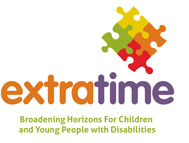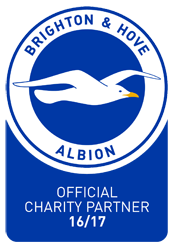DEFINITION OF A KEY PERSON
The EYFS (Early Years Foundation Stage) highlights the job of the key person as a link sharing information with parents and carers about the child’s life at home.
The EYFS glossary defines a key person: ‘the named member of staff with whom a child has more contact than other adults. This adult shows a special interest in the child through close personal interaction day to day’.
The EYFS Principles into Practice card (2.4 Positive Relationships - Key Person) says, ‘A key person has special responsibilities for working with a number of children, giving them reassurance to feel safe and cared for and building relationships with their parent carers.
The welfare requirements of the EYFS (section3.4) explains the requirements of the role more fully, saying that a key person:
- Helps a baby or child to become familiar with the setting and to feel safe and confident
- Talks to parent carers to make sure the needs of the child are being met appropriately
- Makes sure that records of development and progress are shared with parent carers and other professionals as necessary
Key persons are the lynchpins of child care setting, as they shoulder the responsibility for creating the atmosphere in which children can thrive.
Effective delivery of the Early Years Foundation Stage, with its emphasis on meeting the needs of the individual child, will depend largely on key persons fulfilling this role and within Extratime, we extend this extremely effective method of working to our children and young people with disabilities.
When setting up the key person system, we have to take into account the sessions that the child attends, the hours the team member works and the compatibility between the child, parent or carer and the team member. We do change the key person at times but you will be kept informed of this change if it happens.
Every member of the team will be inducted on the key working system and any further training needed is available to them.
The role of the key worker is to keep up to date with the child and their development within our setting through using observation sheets, updating the child’s personal development records, updating the child’s individual planning and then sharing the information with parents and carers. We will regularly meet with other professionals such as school teachers, to discuss behaviour management for example, to ensure consistency in all approaches. We will observe some children in schools every term to make sure that our working practice is the most current and appropriate, and also to ensure positive working links are maintained. We work closely with the local short break residential units, and the parent carers in order to be as consistent as possible throughout the child’s support network.
The key person has a responsibility to the child, the parent carers, and to the setting in terms of doing observations and keeping records.
An effective key person should be
- Committed to their role
- A good communicator
- Calm and confident
- Open and sensitive, particularly during the transition into the setting
- Tactful - never forgetting the parent carers are a child’s key carers
- Able to gather and share relevant information, on a needs to know basis
- Able to prioritise to make the time to communicate with the parent carers at the beginning and end of the session/day.
If you are unsure who the key worker is for your child then please do ask the supervisor at the club who will be more than willing to share this information with you. You can have access to your child’s information at any time and can discuss any areas that you would like us to work on within our settings. If you would like to have a meeting with your child’s key worker, then again, please do ask. Any decisions about your child or changes in the way we are supporting them will be discussed with you.



